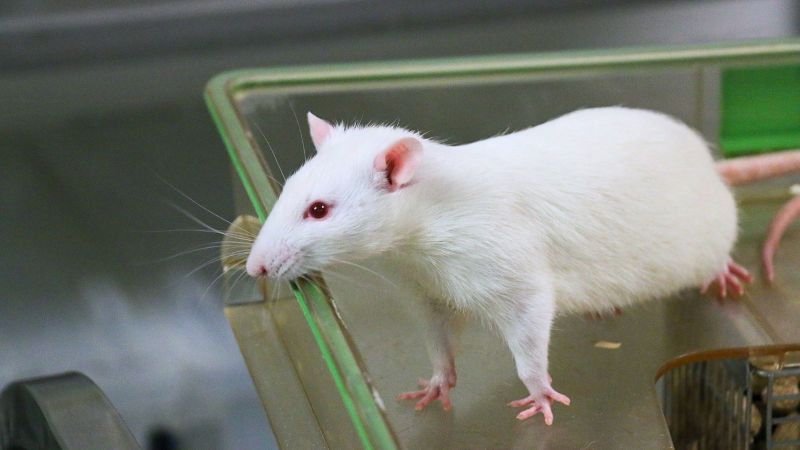14/04/15
Vampire bats appear to have a taste for bacon. Or to be specific, pig blood. By examining DNA found in the droppings of Brazilian vampire bats, scientists from the National Institute of Amazonian Research in Manaus determined that bats were seven times more likely to feed on pigs than on chickens. This finding accounts for chickens being more readily available as prey than pigs.
Although no evidence of human DNA was found in the wild bats, Gerry Carter of the University of Maryland, who developed the bat poop sequencing technique, notes that understanding what vampire bats are eating could shed light on their role as a rabies vector. According to the study bats caused 25 deaths from rabies in northern Brazil between 2004 and 2005.
http://news.sciencemag.org/biology/2015/04/vampire-bats-have-taste-bacon
Surgical tape made from wine and glue has been used to stop liver bleeding in mice. Most glues are not suitable for use in surgery because they are toxic or because they stop being sticky when exposed to moist surfaces. However by combining two cheap, safe chemicals scientists in Korea have created a strong, reusable adhesive that could be used to patch people up after surgery.
Mice treated with the new adhesive bled six times less than those treated with fibrin, and had stopped bleeding altogether within 2 minutes.
Vets at the University of Missouri are trying new drugs to treat cancer in domestic dogs, which could also be used to treat their human owners. Dr. Carolyn Henry, veterinary oncologist, says that dogs get cancer naturally, just like humans. So their cancers are more likely to behave like human cancer when treated.
In addition, our pets face the same environmental cancer triggers that we do, such as sharing our air (and our cigarette smoke), sharing our homes, or drinking our water.
“It’s the same disease, it really doesn’t matter what the species is,” Henry says. “It’s the same disease if it occurs naturally. And so, answers in one species should translate to answers in other species in many cases.”
http://kcur.org/post/shedding-light-human-cancer-studying-canine-cancer
15/04/15
Study in mice at Duke University shows that immune cells which are meant to protect the brain will sometimes start consuming an important nutrient - arginine. The researchers managed to block this process using a small-molecule drug. This had the effect of preventing brain plaques and memory loss in the mice - both associated with Alzheimer's disease.
Carol Colton, professor of neurology at the Duke University School of Medicine, said:
"If indeed arginine consumption is so important to the disease process, maybe we could block it and reverse the disease. We see this study opening the doors to thinking about Alzheimer's in a completely different way, to break the stalemate of ideas in Alzheimer's disease"
16/04/15
The ‘love hormone’ oxytocin could be used to treat mental health problems. Oxytocin is known to reinforce the bonds between individuals. Studies in mice have found that oxytocin plays a role in in manipulating how the brain processes social information by amplifying or supressing neural signals of the brain – oxytocin controls the volume of social information that is being processed by individual nerve cells. Researchers believe the results could lead to new ways of using the hormone as a drug to treat a range of psychological problems related to social behaviour such as social anxiety, post-traumatic stress disorder, speech and language disorders and many others.
Nicotine use increases Compulsive Alcohol Consumption in rats. Smokers have a five to ten time greater risk of developing alcohol dependence than nonsmokers and now we know why. In rats, nicotine exposure promotes alcohol dependence – nicotine makes individuals crave alcohol to ‘reward’ the brian and reduce the stress. The combination of nicotine and alcohol activates a group of neurons, giving positive reinforcement to continue alcohol and nicotine use. This may explain why it is difficult for smokers to quit drinking and vice versa.
http://www.alnmag.com/news/2015/04/nicotine-use-increases-compulsive-alcohol-consumption-rats
Last edited: 6 April 2022 08:25


